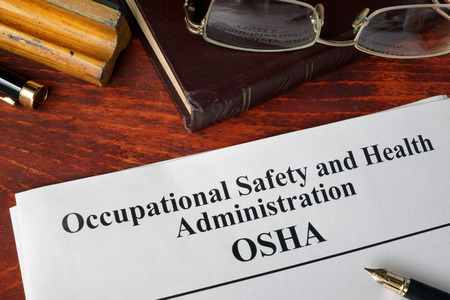OSHA Revised Walking/Working Surface Standards Effective January 2017
April 14, 2017 | Category: Personal Injury, Slip and Fall Accidents | ShareSlip-and-fall accidents in the workplace can lead to serious injury or death and forces the injured employee to take time off from work.
 On January 17, 2017 OSHA's (Occupational Safety and Health Administration) revised walking/working surface standards went into effect. The major provisions of the standards, according to the Environmental, Health & Safety Administration, are:
On January 17, 2017 OSHA's (Occupational Safety and Health Administration) revised walking/working surface standards went into effect. The major provisions of the standards, according to the Environmental, Health & Safety Administration, are:
- The definition of walking and working surfaces now covers any horizontal or vertical surface on or through which an employee walks, works or gains access to a work area or workplace location. This means the rules apply not just to plant floors, but also to parking lots, sidewalks, and surrounding grounds.
- All ladders must be inspected before use in each work shift to identify any visible defects that could cause employee injury. Fixed ladders now will require fall protection when the ladder length is 24 feet or more or if the fall distance from an elevated ladder, which is less than 24 feet long, exceeds 24 feet. The inspection of ladders will be required to be logged, and the records retained.
- Cages are being phased out by OSHA. Any fixed ladder installed after November 19, 2018, must be equipped with a personal fall arrest system or a ladder safety system as cages are no longer accepted as fall protection after this date.
- Since stairs are safer than ladders, OSHA requires employers to install standard stairs when access from one level to another is regular and routine and minimum tread depth of 9 ½ inches.
- Employers must provide fall protection for workers working at four feet or more above an adjacent surface. Employers must also take steps to prevent workers from falling into holes such as skylights, ladder openings and stairway openings.
- Any employee who uses personal fall protection systems must be trained in the nature of the fall hazards in the work area and how to recognize them before May 17, 2017.
These new OSHA walking/working surface standards are adopted to make workplaces safer and prevent accidents. When workers are injured while performing their jobs, they have rights. Those rights include the benefits from workers’ compensation which do not negate rights to filing civil lawsuits. Eligibility for workers’ compensation benefits does not require the employee to prove an employer’s negligence. The fact that the employee was injured while performing his/her job is proof enough.
The benefits from workers’ comp normally include payment of medical and therapy bills, out-of-pocket expenses for medications and crutches, and approximately two-thirds of lost wages during the treatment and recovery period. Workers’ compensation does not provide pain and suffering benefits.
“If your work accident results in a serious injury, consult an experienced personal injury attorney at Spivey Law Firm, Personal Injury Attorneys, P.A. to determine your rights. There are no costs or attorney fees until you win,” said Fort Myers slip-and-fall accident attorney, Randall Spivey.
Fort Myers Slip & Fall Attorney, Randall L. Spivey is a Board Certified Trial Attorney – the highest recognition for competence bestowed by the Florida Bar and a distinction earned by just one (1%) percent of Florida attorneys. He has handled over 2,000 personal injury and wrongful death cases throughout Florida. For a free and confidential consultation to discuss your legal rights, contact the Spivey Law Firm, Personal Injury Attorneys, P.A., in Lee County at 239.337.7483 or toll free at 1.888.477.4839, or by email to Randall@SpiveyLaw.com. Visit SpiveyLaw.com for more information. You can contact Spivey Law Firm, Personal Injury Attorneys, P.A.in Charlotte County at 941.764.7748 and in Collier County 239.793.7748.

